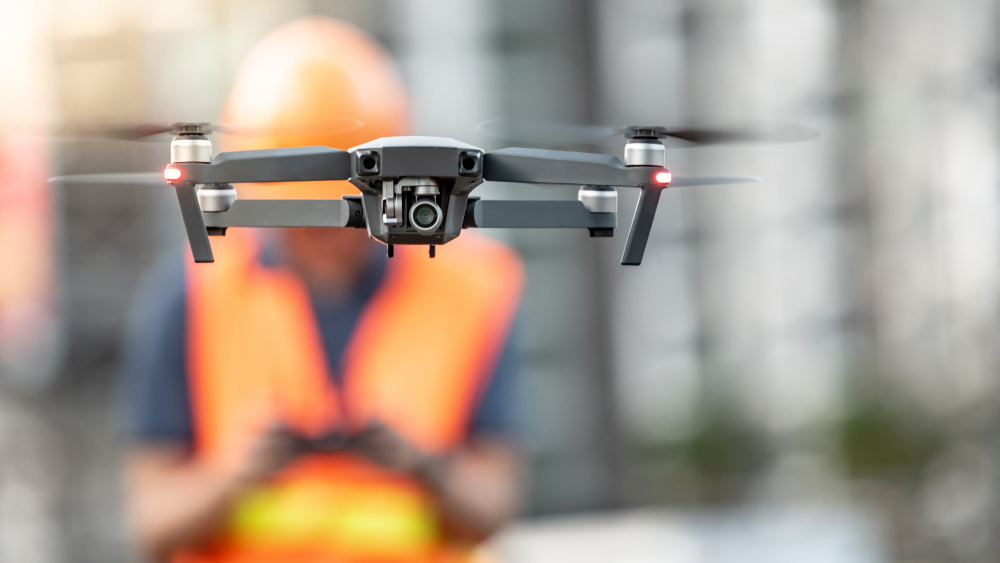With the pandemic forcing the business world to adapt and function on a more remote level, the usage of drones has continued its surge in popularity. In fact, business giants such as Amazon have been investing heavily in drone technology even prior to the pandemic. Drones have numerous applications, including real estate marketing, promotional events, agricultural, movie production, news coverage, wildlife monitoring, border surveillance and construction — to name a few.
In the construction realm, drones improve efficiency, reduce costs, lower the risk of injury and increase the quality of work. Drones, for example, can increase safety by visually accessing areas that would otherwise be physically dangerous, examine damage to a site after a storm, assess the quality of work completed by identifying cracks in the foundation, and help monitor the progress of a new real estate development, allowing the builder or owner to inspect progress from multiple perspectives and angles.
READ ALSO: Metrocenter Mall is getting a $750 million makeover
While the benefits of drone usage are immense, significant liability can ensue if the drone operator or construction company is not careful. One obvious source of liability risk is if the drone crashes into a building, house or group of people. In some cases, loss of control over a drone and a subsequent drone crash could cause death or severe injury.

Furthermore, if a business contracts with a third-party pilot or third-party company to operate the drone, it is imperative that legal counsel review the contract between the parties to assess the level of contractual risk placed on the business. Appropriate insurance should also be obtained.
Drone laws must be followed, and intentionally or inadvertently running afoul of any of these laws is a risk of using drone technology. To fly a drone for business purposes, a person is required to follow the requirements of the Federal Aviation Administration’s Small Unmanned Aircraft System Regulations (Part 107), which includes passing the FAA’s aeronautical knowledge test to obtain a remote pilot certificate. Further, in Arizona, it is unlawful to operate an “unmanned aircraft,” including drones, in a variety of scenarios, for instance, in a manner that interferes with a law enforcement, firefighter or emergency services operation.
Recently, the FAA implemented new rules regarding drone usage, which includes allowing operations at night and over people and moving vehicles. Under the new rules, the FAA must be able to identify drones in flight as well as the location of their control stations, which will enhance public safety and avoid the risk of harm to people or property.
The increasing popularity of drones has also invoked privacy concerns among residents who do not want a drone operator using camera to videotape them on or near their property. For instance, if a high-rise commercial building is being constructed next to a condominium complex, the condo owners might complain about legitimate privacy concerns or pursue other claims from the usage of the drone that assisted with the construction. The legal issue in these cases is whether the aggrieved resident has a reasonable expectation of privacy.
When drones are used responsibly, they can provide significant benefits in construction. But, as with any new technology, managing risk and liability is a critical component and must be taken seriously prior to take-off.
Ben Gottlieb is an attorney and founding partner of MacQueen & Gottlieb. If you have questions, you can contact him at ben@mandglawgroup.com, or call 602-533-2840.




